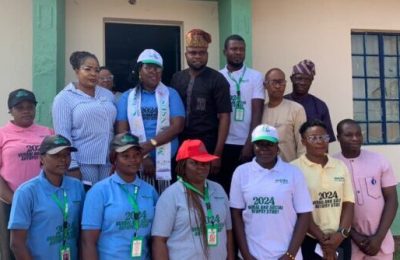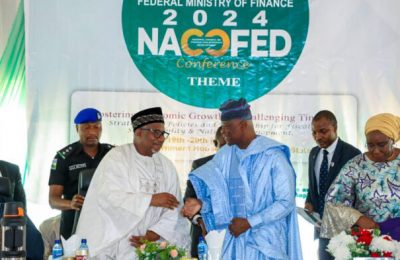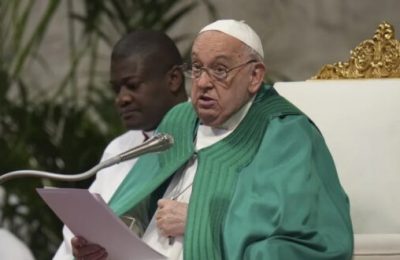BY YEJIDE GBENGA-OGUNDARE
With just few days to the much anticipated 2023 general elections, a combined team of religious women under the aegis of the Women Wing of Christian Association of Nigeria (WOWICAN) and Federation of Muslim Women’s Associations of Nigeria (FOMWAN) have commenced sensitation for women in a bid to mobilise and prepare them on their expected roles in the elections.
Both religious groups, say the exercise is in furtherance of their belief that women are critical stakeholders in election and governance and can consequently, no longer sit on the fence or be detached from the process of selecting leaders to direct the affairs of the nation.

The national chairperson of WOWICAN, Mrs. Bolanle Ihesiulor, during a town hall meeting organised by WOWICAN in Abuja, appreciated the United Nations Women for the support, financial, logistics and otherwise, towards the success of the mobilization and sensitization exercise.
“It’s believed that if you want something said, engage a man, but if you want something done, look for a woman. We have all done a lot of sensitization and orientation work in such a short time. We have also extended our reach to even difficult areas and expected results were achieved.
“We worked and are still working in three states, namely, Cross River, Ebonyi, Ekiti and FCT, while FOMWAN is also working in three state namely, Borno, Kaduna, Kwara and FCT as well.
“We have both worked together during the RCCE programme in 10 states and WOWICAN also worked in Calabar 2022 during the United Nations International Day of rural women cultivating good food for all. All these were done in collaborations with UN Women.

“As we enter into this phase which was designed to extend our reach and also clarify certain questions that must have been encountered in the field with regard to the elections, we hope to strengthen our efforts so we can achieve more.
“Prof. Chinua Achebe of blessed memory said in one of his quotes “when we gather together in the moonlight, it is not because of the moon. Every man can see it in his own compound. We are gathered as mothers to confront the disinterest associated with elections, to dissuade those of us who sell our votes, and to underline the fact that elections are about dialogue and not violence.
“We equally want to appeal to voters to consider and vote for credible women candidates,” she said.
She appreciated the support received from the Independent National Electoral Commission (INEC), the traditional and religious leaders, civil right groups, market women and police commissioners, for the partnership with the UN Women on the subject of the 2023 elections through their presence.
INEC Gender Officer in the Federal Capital Territory, Princewill Martina, in her presentation, further buttressed the point that women are key stakeholders in election and government, and encouraged them to mobilize en masse on election day
“We have assured them that their votes would count, that they should come out en masse to participate in the exercise. INEC has introduced technology into the electoral system. The BVAS machine is the magic wand this time and INEC is ready to give Nigerians free, fair and credible elections.
“We worked and are still working in three states, namely, Cross River, Ebonyi, Ekiti and FCT, while FOMWAN is also working in three state namely, Borno, Kaduna, Kwara and FCT as well,” she added.
Hajia Rafiah Sanni, the National Amirah of FOMWAN, had earlier at a sensitisation programme stated that her association was determined to sensitise women and other stakeholders on the upcoming general elections, noting that the overall goals of the project was to contribute to effective rural women’s participation in free, fair and violence free 2023 elections through interfaith actions.
She underscored the need to counter gender-based violence during all elections, especially by grassroots women and girls, during and after elections.
The FOMWAN president reiterated the importance of electing credible leaders by participating in the 2023 election process so as to increase capacity of the community leaders and faith-based women on curbing gender-based violence.







